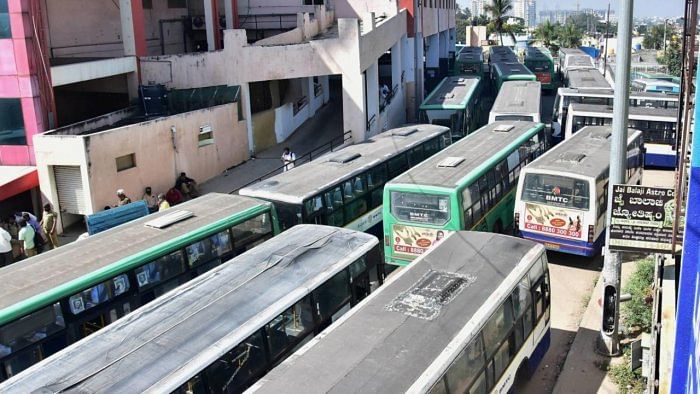
Now that a Congress government is in place in Karnataka, it might be safe to assume that the BJP regime’s plan to build a flyover along Sankey Tank in north Bangalore, entailing the cutting of scores of heritage trees, will be canned. Yet, a reality check is due: It is in the nature of political parties to seek funds for their poll chests. Mega projects such as airports, metro rail systems, and steel flyovers that entail cutting of thousands of ancient trees and filling up of lakes offer prospects for “rent-seeking.”
Sections of the middle classes have risen against plans to fell heritage trees, as they did when the previous Siddaramaiah government’s plans to build a steel flyover emerged and again with the more recent Sankey Tank “flyover beda” movement. But what they are failing to focus on is the impact of such policies and projects on the vast majority of the populace.
More attention is needed to augment public transportation to stem the need for personalised means of commuting.
Tamil Nadu has much better roads and public transportation compared to Karnataka. Result: fewer private vehicles. The state also introduced free bus travel for women.
A few months ago, before the current Congress government in Karnataka announced free bus travel for women – drawing criticism from some quarters including the state’s former ruling party over the offering of “freebies” – the BJP government had itself announced passes for women in the organised sector. Anecdotal evidence suggests that employers, who were expected to cooperate in the process, did not play ball and the scheme did not take off. But why was that scheme limited to the organised sector? Surely, women travelling into the city from the outskirts deserve such a concession too?
Why only women? There are cities around the world that have successfully made public transport entirely free for all.
When S M Krishna was Karnataka’s chief minister, he spoke of turning Bengaluru into another Singapore. The city-state imposes punitive taxes on private vehicles and has extensive, low-priced public transportation.
This writer has lived in New Delhi, Beijing, and Hong Kong for several years and Paris and Hanoi for several months. It was only in the Vietnamese capital that public transportation was woefully lacking and two-wheelers and four-wheelers were in abundance, as in Bengaluru.
The lesson is clear. Bengaluru needs more buses. To be realistic, the contracts for thousands of buses can be as lucrative for ‘rent-seeking’ parties as the building of flyovers. So the mystery is, why do politicians of various hues opt for needless cutting of trees and, equally arguably, needless building of massive steel and concrete structures?
Growing up in the 1960s and 1970s in Bengaluru, we were all too familiar with BTS, for Bangalore Transport Service. The operative word is ‘service’. That is what it ought to have remained, and now, ought to be resurrected as.
Writing exactly ten years ago, engineer and environmental activist G V Dasarathi had this to say about the skewed priorities of the mostly upper caste and upper class-controlled regime in Bengaluru:
“… 30 times more people travel through Majestic [Kempegowda Bus Station] than through the airport, but the expenditure on them is 100 times less. The per capita expenditure on air travellers is 3,000 times more than that on train or bus travellers…on the one hand, there are power and water shortages, overflowing garbage, the state of the government’s educational institutions and hospitals is abysmal, and there is zero town planning. On the other hand, the government is spending enormous amounts of money on widening roads and building flyovers. In successive BBMP budgets, the money allocated for road widening, flyovers and elevated highways is many times the allocation for health and education.”
Bengaluru–and Karnataka–needs thousands of more buses and made available as service and not as profit-making entities. The purchase of those buses might provide “rent-seeking” opportunities that politicians might wish to consider as alternatives to steel flyovers, cutting down trees and encroaching on lakes and slums and thus spare the indigent.
(The writer is a senior journalist)